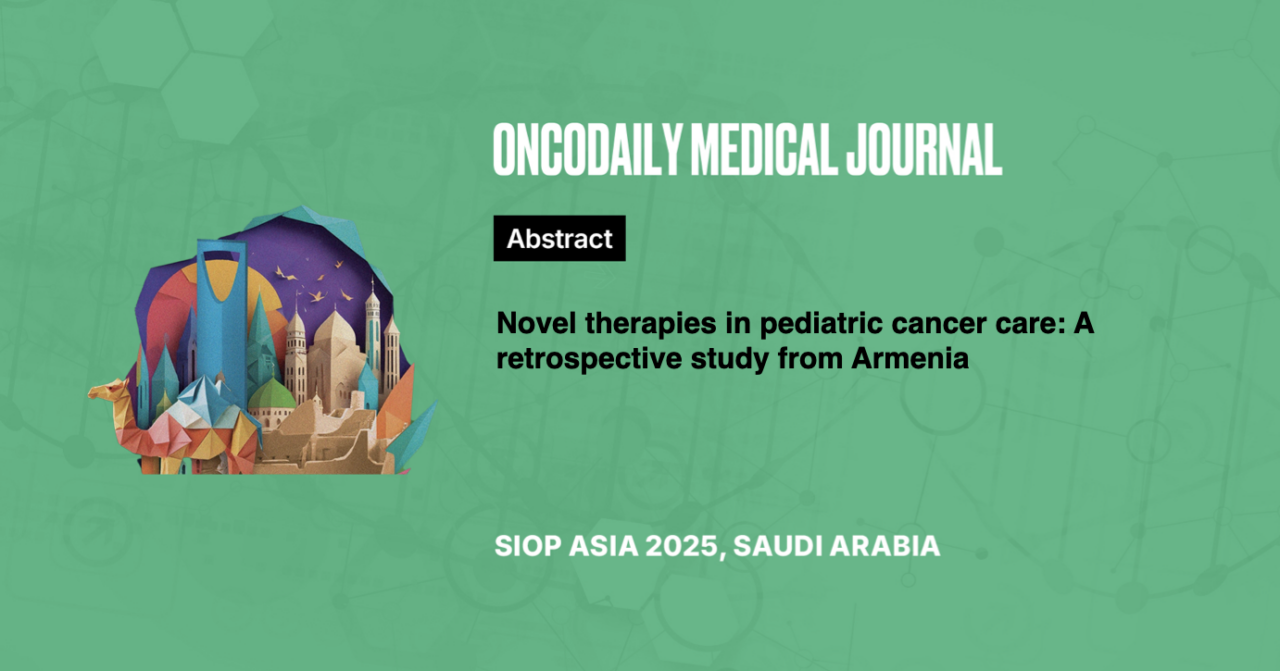Novel therapies in pediatric cancer care: A retrospective study from Armenia
Abstract
Introduction: Pediatric oncology has been revolutionized by immunotherapy and targeted therapy, which offer individualized treatment choices for various malignancies. This study examines the use of these therapies in pediatric oncology in Armenia.
Methodology: A retrospective analysis was conducted on 21 patients treated with immunotherapy and targeted therapy at the Pediatric Cancer and Blood Disorders Center of Armenia between 2021 and 2024. These treatments were administered as first-line therapy, for relapsed or progressive disease, or for palliative care. Data extracted from the records included survival status, disease progression, treatment response, and adverse events.
Results: Out of 21 patients, 5 were diagnosed with hematological diseases (excluding leukemias from this analysis), while 16 had solid tumors. Patients with relapsed/refractory Hodgkin’s lymphoma (brentuximab vedotin, nivolumab), infantile fibrosarcoma (larotrectinib), desmoid fibromatosis (sorafenib, pazopanib), Kaposiform hemangioendothelioma (sirolimus), Berkit lymphoma (rituximab), hepatocellular carcinoma (pembrolizumab, lenvatinib), ganglioglioma (dabrafenib), and melanoma (nivolumab) showed signs of improvement or stabilization of their disease. Eight of the 21 patients—including those with DIPG (bevacizumab), rhabdomyosarcoma (temsirolimus), chordoma (imatinib), and MPNST (pembrolizumab) died due to disease progression, while 13 of them survived.
Among adverse events that were recorded, patients with ALK+ lymphoma treated with crizotinib (ALK+ lymphoma) had QT prolongation, leading to treatment discontinuation. Two high-risk neuroblastoma patients were treated with dinutuximab beta, with one experiencing disease progression and the other discontinuing therapy. Targeted therapy, such as crizotinib for ALK+ high-risk neuroblastoma, was used to improve QOL, however, no response was observed.
Conclusion: This study demonstrates the potential of precision oncology in Armenia, with successes in managing pediatric malignancies through novel therapies. However, the application of these therapies faces challenges such as resource limitations, lack of clinical trials, and treatment discontinuation due to adverse events. Addressing these issues through international collaboration and improving access to advanced treatments in resource-limited settings is essential.





